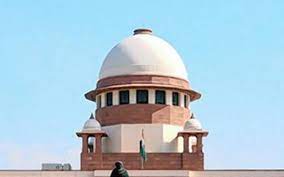CURRENT AFFAIRS
Get the most updated and recent current affair content on Padhaikaro.com
Special courts to try MPs
- IAS NEXT, Lucknow
- 17, Nov 2021

Reference News:
The Supreme Court has decided to examine questions regarding the legal jurisdiction of the special courts set up to exclusively prosecute Members of Parliament and State Legislative Assemblies for various offences.
Why do we need special courts?
- There are more than 4000 cases pending against legislators across the country. Of this, the number of cases against sitting Members of Parliament and members of State legislatures was 2,556.
- The cases against the legislators include that of corruption, money laundering, damage to public property, defamation and cheating.
- A large number of cases were for violation of Section 188 IPC for wilful disobedience and obstruction of orders promulgated by public servants.
- A large number of cases were pending at the appearance stage and even non-bailable warrants (NBWs) issued by courts have not been executed.
- Besides, in Bihar, 89% Assembly constituencies have three or more candidates who have declared criminal cases against themselves in their affidavits for the ongoing elections.
Madras High Court observations:
A three-judge committee of the Madras High Court, in November 2020, questioned the constitutional validity of setting up special courts to exclusively try MPs and MLAs for various crimes.
Why should separate courts not be set up according to the High Court?
- Courts should be “offence-centric” and not “offender-centric.”
- Special courts can only be constituted by a statute and not by executive or judicial fiats.
Why do these observations seem significant?
Timing of the report: The HC committee report comes in the face of a 2017 Supreme Court order authorising the Centre to set up 12 special courts to exclusively try criminal politicians across the country.
It also comes at a time when a three-judge Bench of the apex court is looking at ways to expedite these trials pending for years, in some cases, for decades.
What are the issues associated with the special courts?
Special courts deprive the accused of their right to a rung of appeal. If the case of an MLA or MP whose offence can be tried by a magistrate is directly placed before a special court, the accused would lose his right to defend his case before a magistrate and also is stripped of his right to make his first appeal before a sessions court.
What is the way out?
- Political parties should themselves refuse tickets to the tainted.
- The RP Act should be amended to debar persons against whom cases of a heinous nature are pending from contesting elections.
- Fast-track courts should decide the cases of tainted legislators quickly.
- Bring greater transparency in campaign financing.
- The Election Commission of India (ECI) should have the power to audit the financial accounts of political parties.